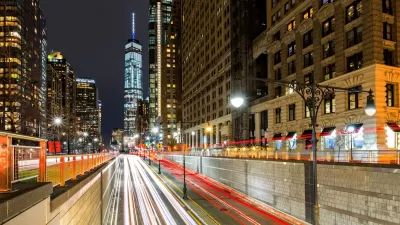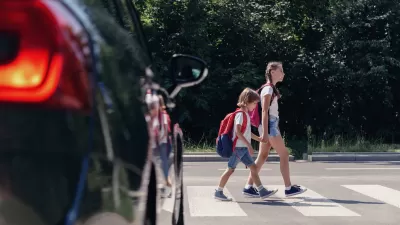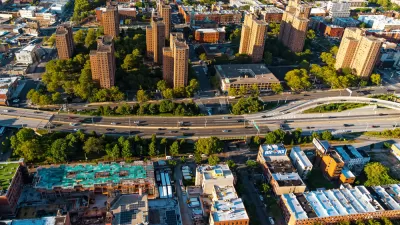Gary Toth considers the damage to the quality of our streets and urban environments caused by the use of travel projection models and Levels of Service (LOS) as performance metrics.
Toth explains how the current reliance on these metrics, aimed at reducing or avoiding congestion, came about, and notes that, "In ridding our communities of the weeds of congestion, we have also pulled out the very plants that made our "gardens" worthwhile in the first place."
According to Toth, overdesigned roads, resulting from a "self-imposed" requirement to maintain high levels of service at the busiest hours (and often for 20 years into the future), "encourage motorists to drive at higher speeds, making them difficult to cross and unpleasant to walk along. This degrades public spaces between the edges of the road and the adjacent buildings, encourages people to drive short distances, and generally unravels a community's social fabric.
Thankfully, "Recognizing the need for balance, a number of entities are beginning to promote approaches sensitive to the context," writes Toth, who goes on to describe such efforts.
FULL STORY: Levels of Service and Travel Projections: The Wrong Tools for Planning Our Streets?

Planetizen Federal Action Tracker
A weekly monitor of how Trump’s orders and actions are impacting planners and planning in America.

Maui's Vacation Rental Debate Turns Ugly
Verbal attacks, misinformation campaigns and fistfights plague a high-stakes debate to convert thousands of vacation rentals into long-term housing.

Restaurant Patios Were a Pandemic Win — Why Were They so Hard to Keep?
Social distancing requirements and changes in travel patterns prompted cities to pilot new uses for street and sidewalk space. Then it got complicated.

In California Battle of Housing vs. Environment, Housing Just Won
A new state law significantly limits the power of CEQA, an environmental review law that served as a powerful tool for blocking new development.

Boulder Eliminates Parking Minimums Citywide
Officials estimate the cost of building a single underground parking space at up to $100,000.

Orange County, Florida Adopts Largest US “Sprawl Repair” Code
The ‘Orange Code’ seeks to rectify decades of sprawl-inducing, car-oriented development.
Urban Design for Planners 1: Software Tools
This six-course series explores essential urban design concepts using open source software and equips planners with the tools they need to participate fully in the urban design process.
Planning for Universal Design
Learn the tools for implementing Universal Design in planning regulations.
Heyer Gruel & Associates PA
JM Goldson LLC
Custer County Colorado
City of Camden Redevelopment Agency
City of Astoria
Transportation Research & Education Center (TREC) at Portland State University
Jefferson Parish Government
Camden Redevelopment Agency
City of Claremont





























